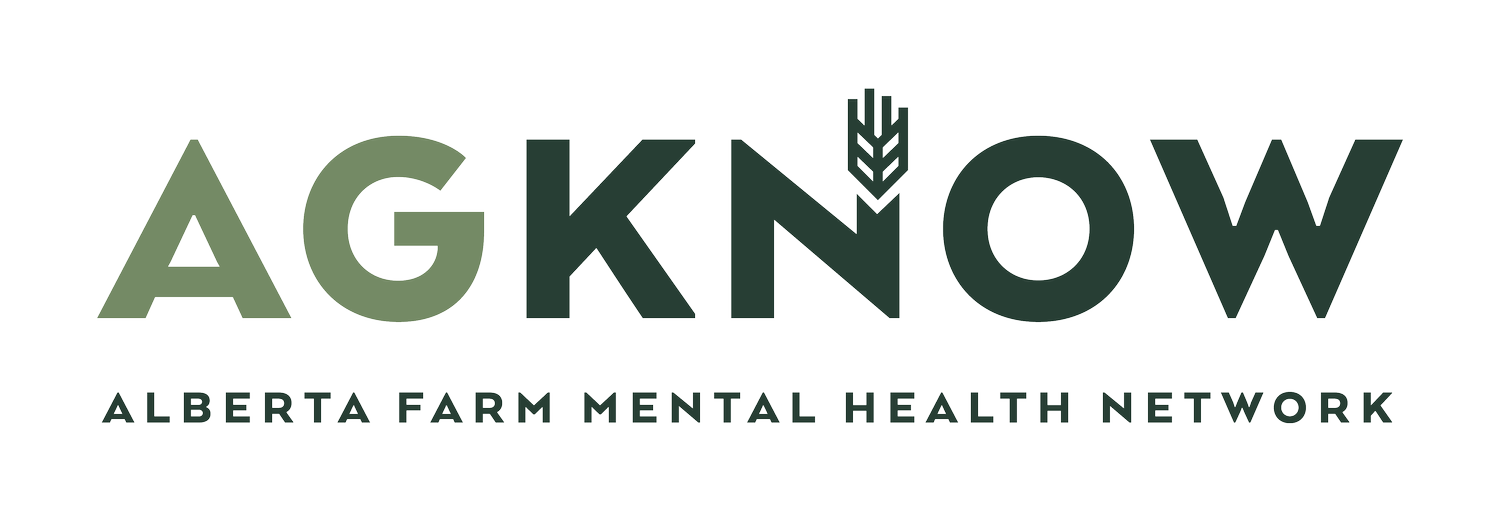calving & peak performance psychology by Erica Leniczek
THE TOUGHEST SEASON: CALVING IN ALBERTA
Calving, seeding, harvest
What do they have in common? They’re times when you’re out of your ‘regular’ routine.
Common advice is for getting ready for these seasons include things like getting machinery ready, making sure you have supplies, getting sleep, focusing on eating nutrient-dense foods, etc., but often we forget about preparing our mindset.
Let’s compare farming seasons to athletes in performance and off season. When you’re calving, it’s not exactly helpful to be focusing on pieces that help you with preparation. It’s go time. Just like an athlete performing, it's not time to focus on how to learn a new skill. It’s time to perform – and to the best of their abilities.
Sometimes, I emphasize the point that your prep tools are tools. You don’t use a crescent wrench to torque tires, and an athlete isn’t trying to hit personal bests in dryland training during the season. You don’t use the same mental health tools for everything else.
PRE PERFORMANCE
Sleep – is integral before performance periods. It rejuvenates your mind and muscles. Optimal recovery is important. Improve it by practicing sleep hygiene (phone off 1 hr before bed, no caffeine after noon, etc.), not going to bed until your are sleepy and using your bedroom only for sleep (and sex lol).
Hydration – hydration fuels your mind and your body.
Nutrition – did you know that your brain uses about 30% of your carbohydrates in the day? You need proper nutrition to fuel your body properly. You won’t put gas in your diesel tractor so don’t expect your body to run the same.
Visualization – can help increase confidence and reduce anxiety. Visualize your season, and your day, or to create a safe/calm place in your mind for a mini ‘mental vacation’ when times are stressful. It’s important to practice in the off-season because it’s a skill you’ll need during performance.
Goals - what do you want to achieve during this busy season that you can control and work towards? Is it staying on top of tagging? Is there something you have dropped the ball on in the past that impacts your abilities? What obstacles do you foresee?
PERFORMANCE SEASON
Focus on what you want done and can control. I tell clients their tools and prep are great, but during a hockey game, players aren’t thinking about flexibility and mobility – those are tools they use pre-game to show up and play great. Sometimes, we have to put our tools down to be successful in the busy seasons.
Stop going to the gym? Okay, that’s fine, you can go when seeding is done.
Struggling to get sleep consistently? I bet you are if you’re calving in January. Focus on sleeping when you can and acknowledge that calving doesn’t last forever. Drink more water when you’re tired and focus on your nutrition to help fuel your body.
Feeling extra stressed? Pause and take 3 deep breaths before you enter the barn.
Your goal is to stay present and focused on the task at hand. All the other stuff can wait.
When you’re in the thick of it, you’re not looking at outcome goals, you’re looking at process goals. Outcome goals are the big goals – what are you trying to achieve overall and for the year? Process goals are – what do I need to get done today?
POST PERFORMANCE RECOVERY
Immediately after calving, focus on recovery. You’re catching up on sleep, getting back into your routines, and relaxing.
It can be beneficial to reflect on what went well, what’s worth improving, and focusing on what you can control moving forward.
Once you’ve reflected, work on cultivating a positive mindset, setting new and manageable goals for your off-season, and having some fun!
MEET ERICA
Erica is a Master of Arts in Counselling Psychology Candidate currently completing her internship. She received her Bachelor of Science and Bachelor of Education (with Great Distinction) from the University of Lethbridge. Erica has over 20 certifications in various health and wellness fields and is passionate about continuing her education. Erica has experience with crisis response and mindfulness practice, and appreciates a respect and client-focused approach to the various therapies used in her holistic practice. She is proud to be a facilitator with AgKnow and hopes to help use her education and experience to help those in the agriculture sector.


